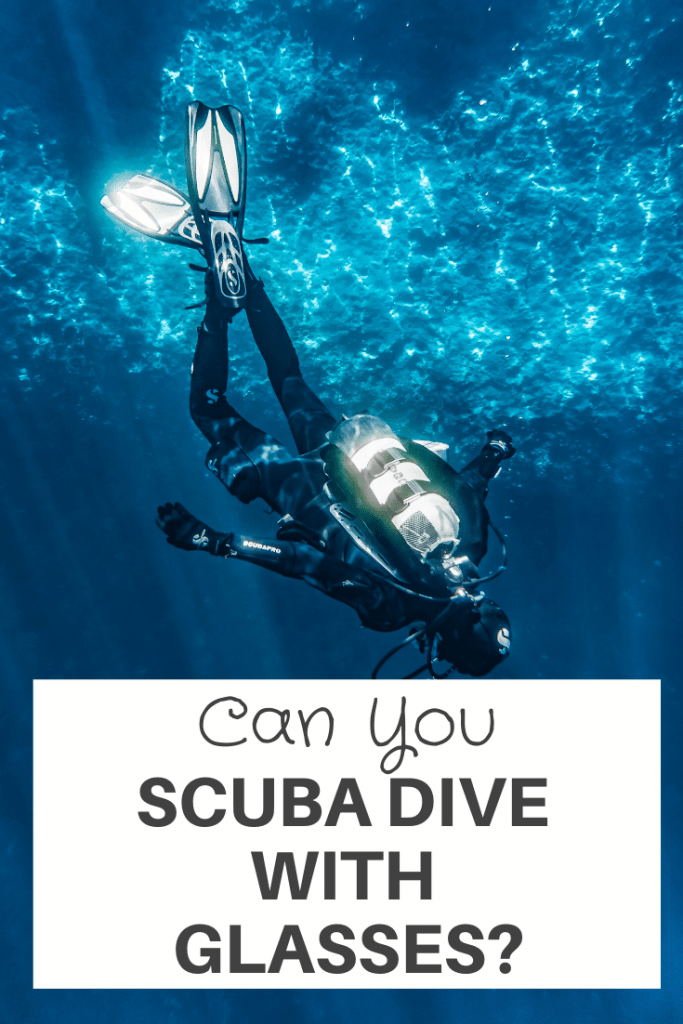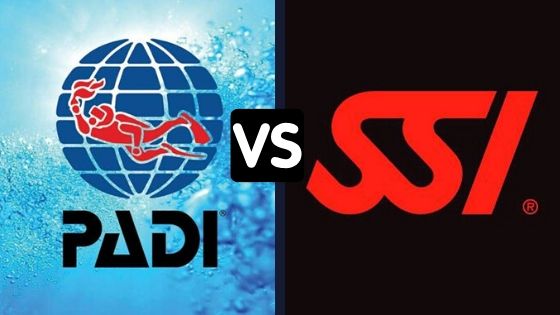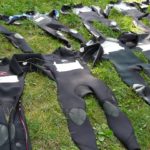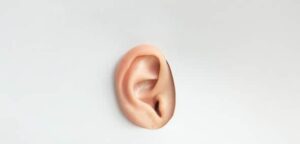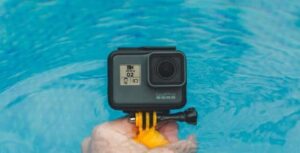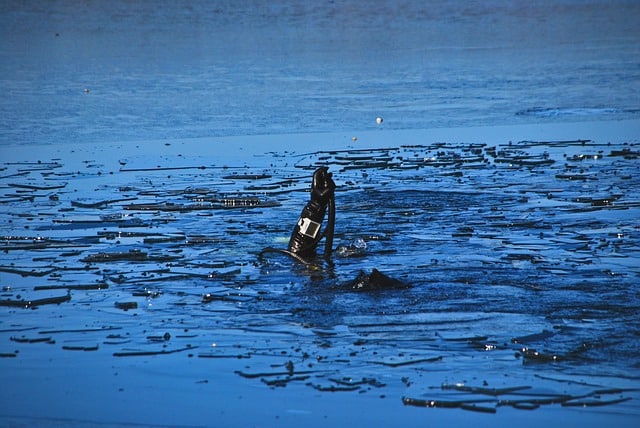
Are you thinking about getting into scuba diving but are concerned about whether you can scuba dive with your glasses on or about slightly blurry vision? Also, when underwater objects like fish or other divers appear larger and closer. This is a natural magnifying property of the water.
Having a visual impairment can be frustrating. With that, they are limitations that can be imposed on your way into your daily life. This leads you to seek alternatives and workarounds to live a normal life. If you want to scuba dive, you’re also going to face some hurdles and obstacles.
In today’s post, we will go through in more detail about can you scuba dive with glasses, so let’s get started!
Read more on common questions asked by divers
Can You Scuba Dive With Glasses?
You will not be able to scuba dive with your glasses on. The glasses will not fit comfortably inside the diving mask as well as equalizing your ears prove problematic.
This may seem like a big inconvenience to getting started with scuba diving, but there are valid safety concerns that lead to this. Fortunately, there are simple remedies to this roadblock that will get you into a wet suit and diving like a pro.
Why Can't I Dive With My Glasses?
The reason why you can’t wear glasses to go scuba diving is that the glasses will prevent your diving mask from sealing to your face. This will allow water to leak inside the dive mask. You need a tight seal to ensure that your mask remains airtight.
Fortunately, prescription eyewear allows millions of people the ability to see the world more clearly from football players to scuba divers. If you are in this category of people and you’re planning your next dive, there is a very good reason why you’d want to see aquatic life and geology with precision.
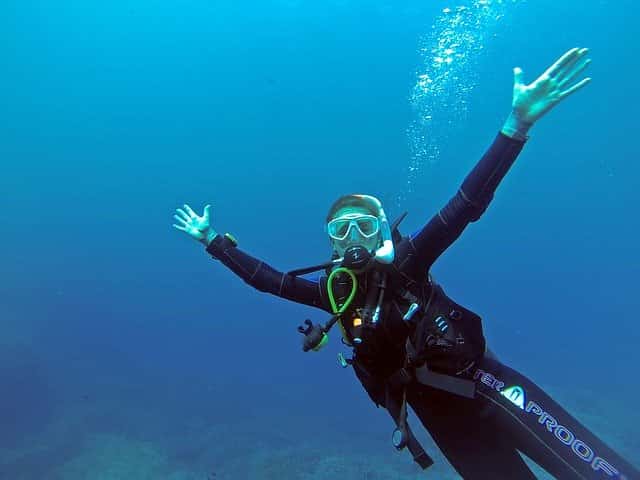
The fact that you can’t wear your glasses while scuba diving isn’t a byproduct of discrimination so much as it is about safety and technical limitations.
If you are only slightly affected by visual impairment, you might not be greatly impeded by not wearing your lenses. Refraction from the water magnifies your vision by roughly 33%. This may be enough to correct your vision sufficiently for basic diving proficiency.
Not all are so lucky. You may be significantly visually impaired. This could pose a problem when needing to read depth and pressure gauges or following the direction of your diving instructor and group.
There are solutions to this dilemma that will give you the freedom that you desire without having to make major compromises.
Prescription Diving Masks
When you can’t wear your assistive prescription glasses underneath your diving mask, the next best solution is to invest or rent a prescription diving mask. If you are anticipating diving quite often, you might want to go ahead and buy a diving mask with your prescription.
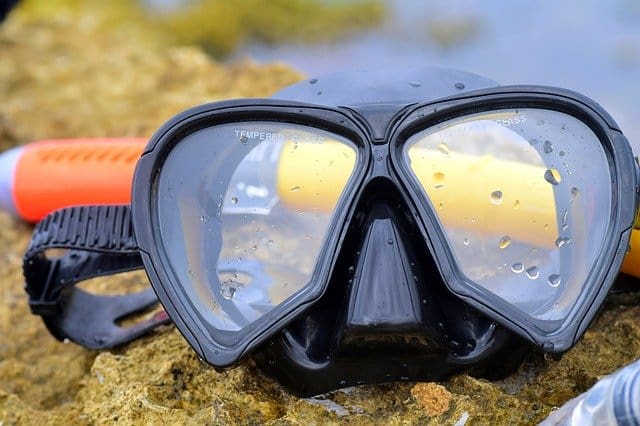
They can be a little pricey but the investment will give you access to years of vibrant underwater macro detail. You really want to see the coral reef in all of its glory, not just a blurry blob in the shape of a coral reef.
Many reputable diving centers offer the visually impaired an opportunity to rent or borrow prescription diving masks as a part of their gear. This might be the best option available to the occasional diver or someone checking scuba-diving off their bucket list.
Prescription lenses for diving masks are available in a wide spectrum of lens strengths and can even accommodate special lens types like bifocals. Some lenses are manufactured permanently into dive masks while others are fitted inserts.
Contact Lenses
There seems to be presently a golden age of affordable contact lenses. This revolutionary visual accessibility aid can greatly improve your vision that can improve your scuba diving experience. It is a great solution if you struggle with your vision and don’t want to invest in a prescription mask.
Disposable soft lenses are the prime contact lens of choice for prospective scuba divers. Hard lenses can be negatively affected by intense pressure changes causing discomfort or damage to your eyes while driving.
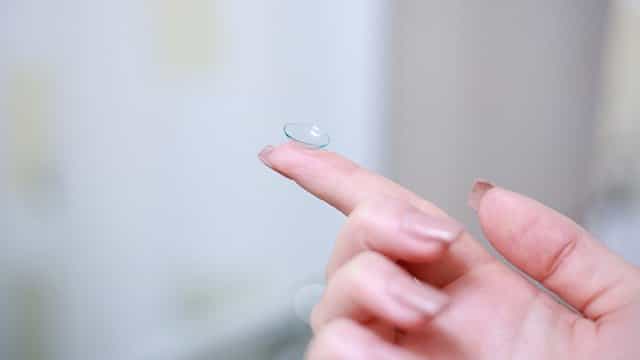
Bubbles may form under the lenses causing visual distortions and impairment. Consult your optometrist before diving with hard lenses.
Soft lenses, however, are an economically friendly option. Even on the off chance, you take your mask off to clean it while underwater and you lose a lens, you won’t suffer a major loss. Having a lens float away is rather uncommon. Most divers who wear contacts experience few complications.
Can I Dive After Eye Surgery?
The wonders of modern medicine can give sight back to many with an impairment. Laser eye surgery, cataract removal, and lens implant are a few procedures that you might have done to improve your vision.
It’s always recommended to allow your eyes to fully heal post-surgery before taking a dive. Otherwise, you risk causing increased damage to your eyes or slowing the healing process.
Some ambitious divers have gotten back into the water 2 to 4 weeks after their procedures, but generally speaking, it takes 3 to 6 months for complete recovery from procedures like LASIK.
If you are planning a procedure or have recently had one done, make sure you thoroughly consult with your doctor before committing to a dive.
Wrapping Up
Finally, your eyes don’t need to stop you from learning to scuba dive. You can’t wear glasses underwater but there are a number of solutions with contact lenses or prescription diving masks. You should also consult your optometrist before diving to give you more advice.
And that’s it for now! I’d love to know if this guide on can you scuba dive with glasses has helped you. Let me know if you have any questions and let me know if there is more to add.
Did you enjoy this post? Then don’t forget to pin it!
